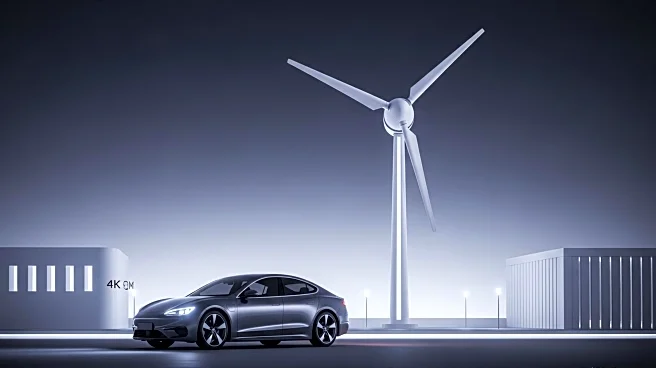What's Happening?
The U.S.-EU trade deal finalized in August 2025 has significantly altered transatlantic economic dynamics, particularly affecting the European auto industry and U.S. energy sectors. The agreement reduces U.S. tariffs on EU automotive imports and eliminates EU tariffs on U.S. industrial goods, creating cost savings and strategic opportunities. European automakers like BMW and Volkswagen are adjusting production strategies to capitalize on reduced trade barriers. Meanwhile, the U.S. energy sector benefits from the EU's commitment to procure $750 billion in U.S. energy exports by 2028.
Why It's Important?
The trade deal represents a strategic shift for both regions, offering substantial benefits to European automakers and U.S. energy firms. For automakers, localized U.S. production and supply chain agility are crucial to maintaining competitiveness. The U.S. energy sector gains a significant opportunity to expand market share and infrastructure, aligning with the EU's energy security and decarbonization goals. The deal also fosters cross-sector partnerships in AI and battery technologies, enhancing innovation and market access.
What's Next?
European automakers must accelerate U.S. production shifts to fully capitalize on tariff reductions before potential renegotiations or regulatory changes. U.S. energy firms have until 2028 to secure infrastructure projects to meet EU procurement targets. Delays could erode competitive advantages, especially amid geopolitical tensions and regulatory hurdles. Stakeholders should monitor execution risks, such as EU legislative delays and unresolved tariff asymmetries.
Beyond the Headlines
The trade deal underscores the importance of strategic alignment and cooperation between the U.S. and EU. It highlights the need for regulatory harmonization and investment in critical sectors like energy and technology. The agreement also reflects broader geopolitical dynamics, with implications for global trade policies and economic growth.










